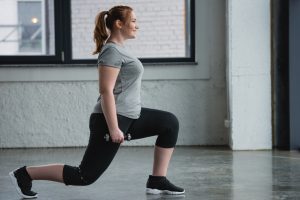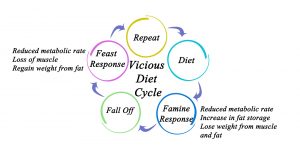How To Lose Weight Without Losing Muscle Mass Over 40

Follow the proven tips below to ensure you lose weight without losing muscle mass over 40.
As we age, losing weight becomes more important than ever due to the numerous health risks associated with being overweight. However, losing weight can also impact our muscles, often leading to a reduction in muscle mass. This can be particularly concerning for those over 40 who may already be experiencing age-related muscle loss. In this article, we will explore the importance of losing weight after 40, the dangers of losing muscle mass, and most importantly, how to lose weight without losing muscle mass.
Understanding the Physiology Behind Weight Loss and Muscle Gain
Weight loss is achieved by creating a calorie deficit, which means consuming fewer calories than your body burns. Typically, this involves a combination of reducing calorie intake through diet and increasing physical activity levels to burn more calories. However, when attempting to lose weight, many people neglect the role that muscle mass plays.
Muscle mass is important as it is metabolically active, meaning that it burns calories even at rest. So, as we lose muscle mass, our metabolic rate decreases, which makes it harder to burn calories and maintain weight loss. Additionally, muscle loss can impact balance and mobility, increasing the risk of falls and injuries.
When it comes to age-related muscle loss, known as sarcopenia, research has shown that starting in our 30s, we can lose anywhere from 3-8% of our muscle mass every decade. This loss can accelerate after the age of 50, which is why preserving muscle mass during weight loss is crucial.
Tips for Losing Weight Without Losing Muscle Mass

1. Resistance Training: Incorporate resistance training, such as weight lifting or bodyweight exercises, into your exercise routine. Resistance training is crucial for preserving and building muscle mass. One doesn't need to invest too much time strength training. Only twice a week for 30 minutes can get the job done.
2. Adequate Protein Intake: Ensure that you are consuming enough protein to build and maintain muscle mass. A good rule of thumb is to aim for 1-1.5 grams of protein per kilogram of body weight per day.
3. Calorie Deficit: Create a calorie deficit through a combination of exercise and a balanced diet. However, be sure to avoid extreme calorie restriction as this can also lead to muscle loss. Instead, aim for a small deficit of around 500 calories per day.
4. Interval Training: Include interval training into your exercise routine to increase calorie burn and improve cardiovascular health, without the muscle loss associated with long-duration, steady-state cardio. Interval training will assist in helping the body burn more calories at rest following intense bouts of intervals.
5. Essential Micronutrients: Ensure that you are consuming enough essential micronutrients, such as vitamins D and B12, to support muscle health and function.
Common Mistakes to Avoid While Losing Weight Without Losing Muscle Mass Over 40

How To Prevent Weight Regain
1. Overtraining: Excessive exercise can cause muscle loss and increase the risk of injury. Be sure to allow for rest days and to switch up your training routine to avoid overworking specific muscle groups.
2. Not Getting Enough Rest: Sleep is essential for muscle recovery and growth. Aim for 7-9 hours of sleep per night to support your weight loss and muscle-building goals.
3. Lack of a Balanced Diet: A balanced and varied diet is essential for maintaining muscle mass and overall health. Be sure to include a range of foods from all food groups, including protein-rich foods, whole grains, fruits, and vegetables.
Losing weight after 40 is important for maintaining overall health and preventing chronic diseases. However, it is equally crucial to preserve muscle mass during weight loss to maintain metabolic rate, balance, and mobility. By incorporating resistance training, adequate protein intake, a small calorie deficit, interval training, and essential micronutrients, you can lose weight without sacrificing muscle mass. Avoid overtraining, prioritize rest, and ensure that your diet is balanced for optimal results. The key is to approach weight loss holistically, taking care of both your body and mind to achieve your health goals.
Need Personalized Help Reaching Your Weight Loss And Fitness Goals?

